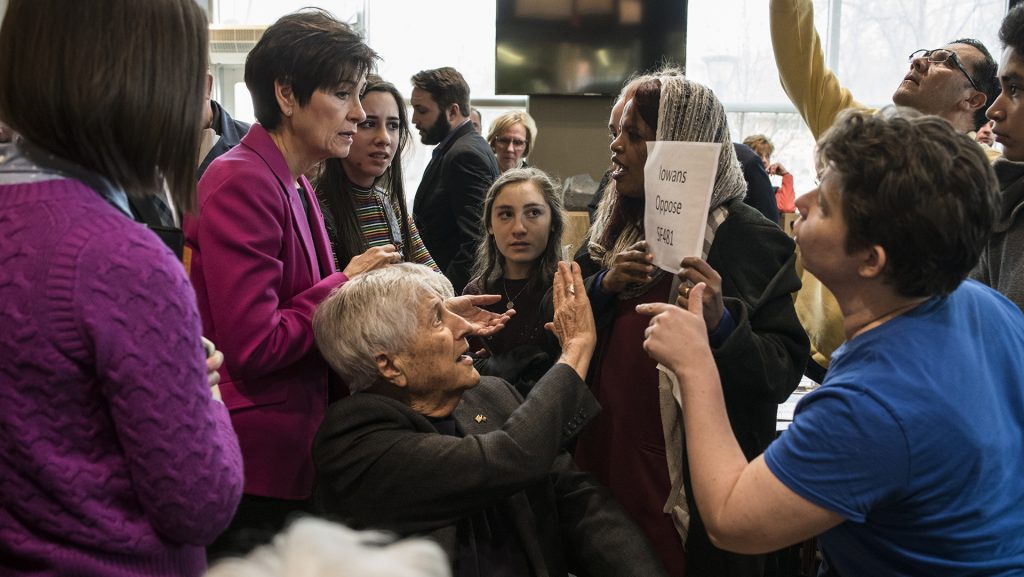The Legislature’s failed promises ultimately burden communities, not the politicians who make them.
Last month, our governor approved more than $35 million in midyear budget reductions. Last session, lawmakers approved about $118 million in cuts to the fiscal 2017 budget, and the state also borrowed $141 million from emergency funds.
What is going on? The Basics of the General Fund Budget of Iowa reports that nearly 50 percent of Iowa’s revenues have traditionally come from personal income tax and sales tax, yet both of those wells are depleted. Recently, Ames economist David Peters reported that Iowa’s farm revenues had dropped by half by 2016, amounting to a $49.3 million drop in state revenue collection. Sales-tax dollars to the state coffers have also declined during the last decade by $335 million.
RELATED: UI halts campus construction to cope with midyear budget cuts
What other losses are there? The Des Moines Register recently tallied tax breaks as of January 2017. They are old and new, set to expire or not, capped or not, and they are set to cost $430 million in the budget year 2018. Few taxpayers have ever seen a complete list or know the full impact of all of these credits on the state budget. Their final figure: 373 separate tax credits, exemptions, deductions and exclusions in Iowa’s tax code, annually totaling $12.1 billion. The state budget, meanwhile, is just over $7 billion. The gap speaks for itself.
RELATED: Letters to the Editor: Fund the backfill, corrections to voter turnout column
Nevertheless, Gov. Kim Reynolds recommended postponing any serious study of tax credits, despite their inflated size. The Republican-led Legislature has now focused its sights on state agencies and institutions for the second year in a row with a round of midyear budget cuts, crippling local communities who had already passed budgets based on anticipated revenues from the state. Now it is turning its attention to yet another tax cut.
Meanwhile, Iowa cities wait to see if lawmakers will keep their promise to “backfill” payments local governments lost from the Legislature’s 2013 tax cuts for commercial and industrial property owners. Those cuts were especially hard on communities where regent universities and institutions are located, but many other communities were hit hard as well. When the Legislature fails to keep its promises, the burden falls on Iowa taxpayers to fill the gap created by politicians.
RELATED: Iowa Legislature sends funding cuts aimed at UI, ISU budgets to Gov. Reynolds
The League of Women Voters believes that efficient and economical government requires adequate financing and coordination among all levels of government. The Iowa government is running amok with ill-conceived plans that don’t serve its citizens or its communities. How much longer will Iowans have to suffer these inefficiencies and inabilities?
— Syndy Conger,
president League of Women Voters of Johnson County



